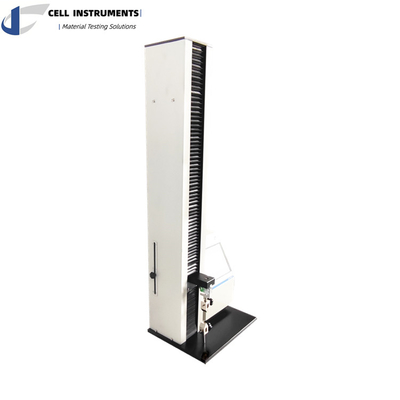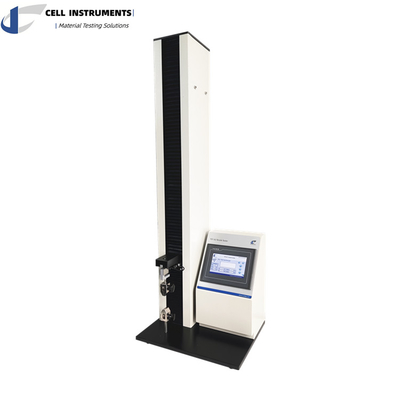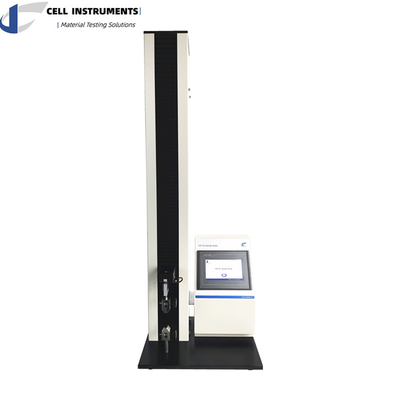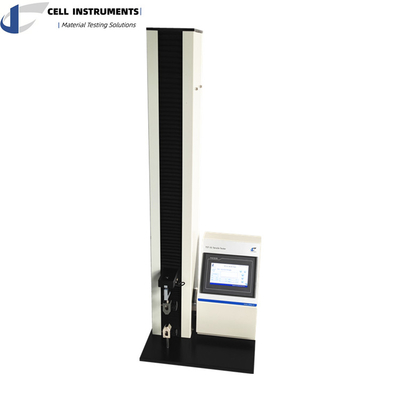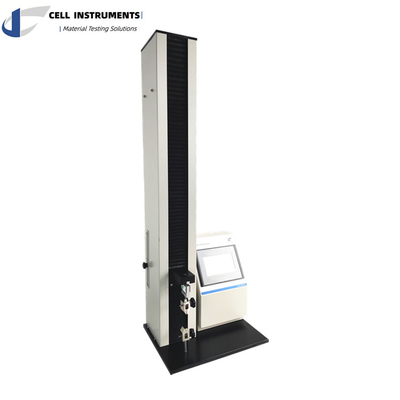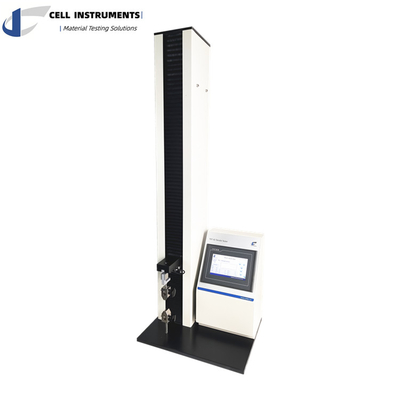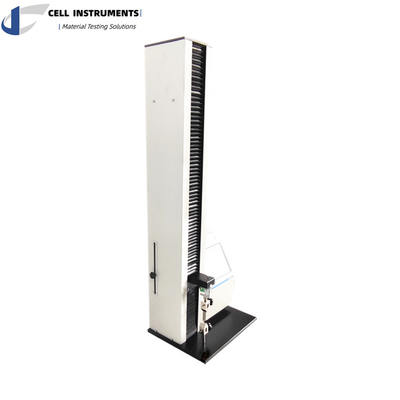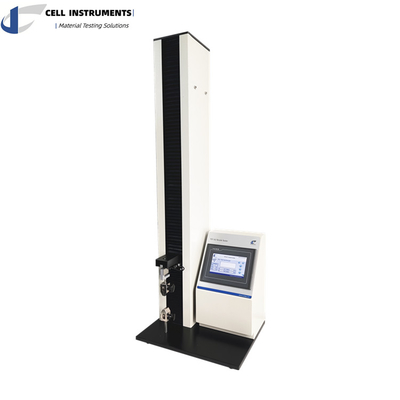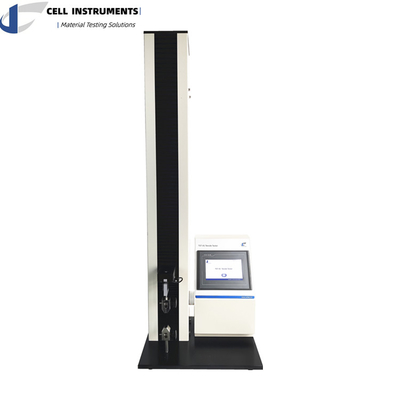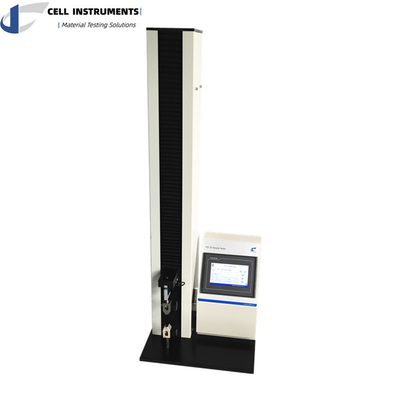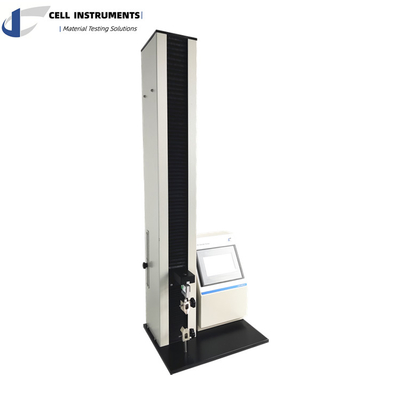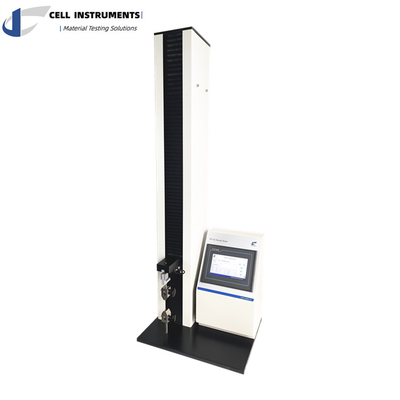Precise Tensile Testing Machine For Plastic Film ASTM D882 Plastic Thin Sheet Tensile Tester Tensile Properties Tester
| Test Range | 0-500N (or 50N, 100N, 200N, Etc) | Stroke | 800mm (customizable For Other Strokes) |
|---|---|---|---|
| Test Speed | 1~500mm/min | Displacement Accuracy | 0.01mm |
| Accuracy | 0.5% Full Scale | Sample Width | 27mm (optional Width Available) |
| Control | PLC And HMI Screen | Data Output | Microprinter (optional), RS232 (optional) |
Precise Tensile Testing Machine For Plastic Film ASTM D882 Plastic Thin Sheet Tensile Tester Tensile Properties Tester
![]()
Introduction to the Tensile Testing Machine
The TST-01 Tensile Testing Machine is a crucial instrument for evaluating the mechanical properties of plastic and rubber materials under tension. Designed to meet industry standards and regulatory requirements, this Tensile Testing Machine provides essential data that ensures plastic and rubber products are fit for their intended applications. By delivering accurate and reliable tensile testing results, it supports quality assurance and material development processes across various industries.
Test Significance
Tensile testing of plastic sheets is critical for several reasons:
-
Material Characterization: This process provides detailed insights into the mechanical behavior of plastic materials. Key properties such as tensile strength, elongation at break, and modulus of elasticity are determined, which are vital for assessing material performance.
-
Quality Control: Consistent and reliable mechanical properties are crucial for product quality. Manufacturers utilize tensile testing to verify that plastic sheets adhere to prescribed quality standards, ensuring optimal performance in final products.
-
Product Development: The Tensile Testing Machine is instrumental in developing new plastic materials. Engineers use the data to evaluate different formulations and processing conditions, optimizing mechanical properties for specific applications.
Technical Features
The TST-01 Tensile Testing Machine is equipped with advanced features to ensure precise and consistent results:
-
PLC Control and HMI Touch Screen: Operated through an intuitive 7-inch TFT touch screen, the machine provides user-friendly operation and efficient functioning.
-
Precision Ball Lead Screw Mechanism: Guarantees accurate speed and displacement control for reliable results.
-
Versatile Testing Programs: Capable of conducting various tests, including break, tension, elongation, seal strength, 90° peeling, and 180° peeling.
-
Adjustable Test Speed: Allows customization of test speed from 1 to 500 mm/min.
-
Compatibility with Multiple Fixtures: Supports various test fixtures for diverse testing needs.
-
Limiting Device and Automatic Returning Function: Enhances safety and precision during testing.
-
Optional Features: Includes a microprinter for immediate results, RS 232 port for data communication, and optional professional software for advanced analysis.
Main Parameters
| Test Range | 0-500N (or 50N, 100N, 200N, etc) |
| Stroke | 800mm (customizable for other strokes) |
| Test Speed | 1~500mm/min |
| Displacement Accuracy | 0.01mm |
| Accuracy | 0.5% Full Scale |
| Sample Width | 27mm (optional width available) |
| Control | PLC and HMI Screen |
| Data Output | Microprinter (optional), RS232 (optional) |
Relative Standards
- ASTM D882: Outlines methods for determining the tensile properties of thin plastic sheets.
- ISO 527: Provides general principles for determining the tensile properties of plastic materials.
- ISO 37: Offers guidelines for conducting tensile tests on rubber or plastics, specifically for determining tensile properties at break.
Conclusion
The TST-01 Tensile Testing Machine is an indispensable tool for quality inspection in the plastic and rubber industries. It offers critical data for material characterization, quality control, and product development. Adhering to international standards such as ASTM D882, ISO 527, and ISO 37 ensures that test results are consistent and reliable, contributing to the safety and performance of materials used in various applications.
![]()



